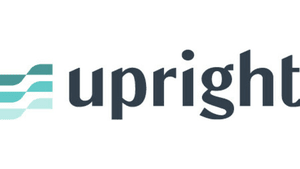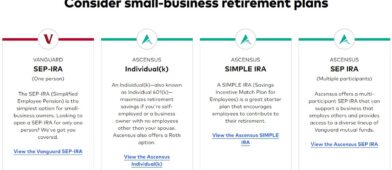Real estate is a very well understood but often poorly executed way of building wealth. It only takes one episode of an HGTV house-flipping show to know that it doesn’t take a genius… but even geniuses can mess it up with bad execution.
If you’re a buy-and-hold investor, you’re less likely to mess it up but then you run into the “death by a thousand paper cuts.” There are maintenance, repairs, finding tenants, kicking out deadbeats, 2 AM plumber phone calls, cleaning, … you get it
If you read a book about real estate investing, it all sounds so simple. And it is simple. But it’s not easy.
As they say, the devil is the details.
That’s why so many people invest in real estate investment trusts (REIT). A REIT offers exposure to real estate without any of the work. Vanguard’s REIT Fund charges you only a 0.12% expense ratio and you get exposure to a variety of commercial real estate companies. That’s only $12 on every $10,000 invested!
What if you don’t want to own a fund that only invests in storage facilities, office parks, and malls? What if you want to invest in vacation rentals? Or single family homes? Until recently, you were out of luck. You could try to find a real estate syndicate in your area but that’s not without its risks.
The best option may be a crowdfunding real estate investing platform.
Best Real Estate Crowdfunding Sites Summary
| Site | Specialization | Minimum | Accreditation Required? | Learn more |
|---|---|---|---|---|
| Fundrise | eREIT (fund) | $10 | Any Investor | Learn more |
| Arrived | Single family homes | $100 | Any Investor | Learn more |
| Streitwise | eREIT (fund) | $5,000 | Any Investor | Learn more |
| AcreTrader | Low fee investing in farmland | $3k-$10k | Accredited Investor | Learn more |
| HoneyBricks | Tokenized commercial real estate | TBD | Accredited Investor | Learn more |
| Yieldstreet | Multiple investment opportunities | $2,500 | Any Investor | Learn more |
| RealtyMogul | Commercial real estate directly or via fund | $1k-$5k | Any Investor | Learn more |
| EquityMultiple | Institutional commercial real estate | $5,000 | Accredited Investor | Learn more |
| Groundfloor | Secure, collateralized short-term debt | $10 | Any Investor | Learn more |
| Upright | High-yield short-term debt | $1,000 | Accredited Investor | Learn more |
| CrowdStreet | Commercial real estate | $25k-$100k | Accredited Investor | Learn more |
Table of Contents
- Fundrise – Good for Diversification
- Arrived – Single Family Homes
- Yieldstreet – Variety of Real Estate Assets
- Streitwise – Low Minimum Investment
- AcreTrader – Best for Farmland
- HoneyBricks – Best for Tokenized Real Estate
- CrowdStreet – Best for Commercial Real Estate
- RealtyMogul – Access to Commercial Real Estate
- EquityMultiple – Debt & Equity Investments
- Groundfloor – Low Minimum, High-Yield Debt
- Upright – Short-term High-Yield Debt
- The Rest of the Pack
- Should You Invest in These Deals?
🔃UPDATED: Updated in January 2024 to update some of the details around several platforms.
Fundrise – Good for Diversification

Fundrise is one of the best crowdfunding real estate investing platforms for non-accredited investors because they offer a package of their individual investments in a vehicle they call an eREIT. Being an accredited investor is usually one of the biggest roadblocks to investing in a real estate platform, Fundrise offers an alternative for those who don’t meet that high bar.
The eREITs follow an investment strategy, available in their offering documents. They’re like regular REITs except the minimum is a low $10. Unlike regular REITs that trade on the open market, these are not publicly traded. You can only redeem your shares quarterly. They’re more liquid than a syndicate, less liquid than a mutual fund.
We have a full review of Fundrise.
Learn more about Fundrise
(This is for both accredited and non-accredited investors)
Arrived – Single Family Homes

Arrived is a platform that lets you buy shares of rental properties and collect rent while Arrived acts as the property manager. You are part owner of the property so you also get any property appreciation whenever the home is sold. It’s a great way to diversify into rental properties ($100 minimum) without any of the headaches of managing the property yourself.
The hold period is anywhere from 5-7 years and there’s no secondary market so when you buy the shares, you’ll have to hold them for the entirety of the hold period. The stated return is generally in the 5-7% range.
Our review of Arrived goes into greater detail.
Learn more about Arrived
(This is for both accredited and non-accredited investors)
Yieldstreet – Variety of Real Estate Assets

Yieldstreet is a platform that offers a variety of investment offerings which includes, but is not limited to, real estate. You can invest in a multi-asset class fund (non-accredited investors) that spreads your investment across several asset classes or you can select individual offers – which will have their own yields and terms.
The multi-asset class fund (Yieldstreet Prism Fund, not available in NE or ND) has just a $2,500 minimum while the individual offerings will have a $5,000 minimum investment. There is a third option, investing in short term notes (3-6 months), which has a $2,500 minimum but is only available to accredited investors.
It’s free to sign up for Yieldstreet so you can sign up and look around for yourself. Or, if you wish to learn even more, our Yieldstreet review goes into greater detail.
$500 Bonus Offer: For a limited time, Yieldstreet is running a new account promotion where you can get up to $500 when you open an account and deposit funds. You get $50 for deposited $1,000 all the way up to a $500 bonus if you deposit more than $10,000.
Learn more about Yieldstreet
(This is for both accredited and non-accredited investors)
Streitwise – Low Minimum Investment
Streitwise is a real estate investment trust that advertises 8.4% returns with a low minimum investment. It’s open to non-accredited investors.
The fee structure issimple – 2% fee on assets under management. When you review the fees of other deals, you’ll often see that fees like that are tucked into the amount being raised (in the form of acquisition fees, financing fees, performance fees, etc.) as well as the disbursements. Having a simple 2% fee of the assets under management is a lot clearer of a structure than others.
Since it is a REIT, they distribute dividends quarterly and are required to distribute 90% of their taxable income annually to maintain that structure. You should expect to hold your investments in Streitwise for a period because there is a 1-year lockout and a redemption window each quarter. You also have the option of reinvesting dividends if you so choose.
The minimum investment is $5,000 and we have a full review of Streitwise here.
Learn more about Streitwise
(This is for both accredited and non-accredited investors)
AcreTrader – Best for Farmland
Did you know you can invest in farmland?
AcreTrader is a new real estate platform that specializes in farmland. They research all the deals, select less than 5% of them, and acquire the farms through an LLC. You can earn income through rent as well as see appreciation in the land itself. Did you know that 40% of U.S. farmland is rented or leased?
The minimum investment amount is usually between $3,000 to $10,000. This varies between investments based on the price per acre and the total cost of the farm.
They charge just 0.75% of the farm’s value as an annual management fee plus any closing costs on each deal. The typical hold period is 3-5 years though some deals are 5-10 years, you can sell your shares on the marketplace. And you can do this in a self-directed IRA!
It’s a fascinating asset class that you won’t be able to get on any other platform. Read our full Acretrader review for more details.
Learn more about AcreTrader
(This is for accredited investors)
If you want to see more farmland deals, another startup is FarmTogether. I know less about them than AcreTrader but they’re similar platforms. Also for accredited investors and their deals typically have a $10,000 to $50,000 minimum. You get cash yields on a quarterly, semi-annual, or annual basis. It’s also free to join so you can sign up just to see their deals. We have a detailed review of FarmTogether here.
To compare the two, we have this – AcreTrader vs. FarmTogether.
HoneyBricks – Best for Tokenized Real Estate

If the term “tokenized real estate” caught your eye, HoneyBricks offers an SEC-complaint investment option for folks who are familiar with crypto. With HoneyBricks, you can invest in fractional commercial real estate, much like other platforms listed here, but you can do so with both crypto and fiat currencies. You can also be paid in crypto too – they support 5+ tokens.
While it supports crypto, this is not an investment in crypto. It is simply leveraging much of the same technology (and accepting crypto as payment) to give you access to real estate investments. In the end, it’s still real estate investing.
The only liquidity limitation is that you must hold the tokens for at least 12 months.
Read our full review of HoneyBricks for more!
Learn more about HoneyBricks
(This is for accredited investors)
CrowdStreet – Best for Commercial Real Estate

Crowdstreet specializes in individual commercial real estate investments with a variety of hold periods (the current investment opportunities as of May 2021 were anywhere from 2 years to 9 years) with very attractive target investor internal rate of returns (high teens to low 20s). These are investments in specific properties, rather than a fund that diverisifes, so you must be an accredited investor.
They’ve launched nearly 500 deals with close to $2 billion in capital raised so they’ve been active since their founding in 2014. Minimum investment is typically $25,000 but some deals require at least $100,000 depending on the size.
Learn more about CrowdStreet
(This is for accredited investors)
RealtyMogul – Access to Commercial Real Estate

RealtyMogul launched in 2013 and offers accredited and non-accredited investors a way to invest in commercial real estate. Accredited investors can invest in specific deals while non-accredited investors can contribute to two REITs. They don’t deal with any residential deals and look to invest in targeted commercial real estate deals that the average investor won’t have access to.
Whereas the larger REITs focus on large corporations like Simon Property Group (mall owner/operator) and Public Storage (huge storage facility operator), RealtyMogul looks to invest in apartment communities, retail centers, and Class A office buildings.
The minimum investment size for individual projects is $5,000 and their REIT, the Income REIT, has a minimum of $5,000 as well. You can check out our full review of RealtyMogul to learn more.
Learn more about RealtyMogul
(This is for both accredited and non-accredited investors)
EquityMultiple – Debt & Equity Investments

Equity Multiple offers debt and equity investments that exclusively focuses on institutional commercial real estate. They also have syndicate loans and they’re backed by an existing national real estate advisory firm (Mission Capital), which helps with the pipeline of deals.
The minimum is $5,000 and the fee structure is designed to align their interests with you, the investor, and based on the type of investment. There’s typically a 0.5% annual fee, to cover administrative costs, plus 10% of the profits after you’ve received all of your initial investment back. In preferred equity and debt deals, they also take a servicing fee in a “spread” between the interest rate charged to the borrower and what is paid out to you. Finally, in all deals, they will collect a portion of the total amount raised. This fee structure is typical, you have to review specific deal terms to know the specific numbers in each.
Our full review of EquityMultiple goes into greater detail, check it out if you want a deeper look.
Learn more about EquityMultiple
(This is only for accredited investors only)
Groundfloor – Low Minimum, High-Yield Debt

Groundfloor is a platform in which any type of investor, you do not have to be accredited, can invest in short-term high-yield debt that is secured by real estate. Rather than owning equity in a property, you are simply owning debt that can have terms as short as 12-18 months. It’s based out of Atlanta and has been around since 2013.
If you’re familiar with peer-to-peer lending platforms like LendingClub, this is similar in that you can invest in loans with as little as $10. Unlike peer-to-peer lending platforms, which are unsecured notes, these loans are secured by the properties themselves and the typical loan-to-value ratio is 40-70%.
Here’s our full review of Groundfloor to get more details.
Download the Groundfloor Mobile App
(This is for both accredited and non-accredited investors)
Upright – Short-term High-Yield Debt

Based out of Cleveland, Upright (formerly known as Fund That Flip) is another fintech that specializes in debt investments, offering fractional shares of residential rehab and new construction loans (which Upright originates).
You can invest in individual mortgage debts or one of Upright’s two funds: their Pre-Funding Note Fund (PFNF), which invests in a pre-funding line of credit that finances every Upright loan, and their Horizon Residential Income Fund (HRIF), which is a managed portfolio of short-term, residential bridge mortgages.
Upright promises up to 13% annual returns, regardless of whether you opt for individual borrower notes or a fund. As well, the company boasts strong underwriting criteria, with only 6% to 8% of submitted projects approved for funding.
Upright requires a heftier minimum investment than Groundfloor and you need to be an accredited investor. However, their minimums are still competitive with what most other crowdfunding sites require. There’s a minimum investment of $1,000 for the PFNF and a $15,000 minimum investment for the HRIF.
Learn more about Upright
(This is for accredited investors only)
The Rest of the Pack
As more sites pop up, I will continue to take a look at them and how they are different.
This list are companies or sites I haven’t looked at closely but since I’ve heard of them, I wanted to make sure you did too. Email me if you want me to take a closer look at any one of them:
- Small Change – They invest in commercial and residential real estate projects based on their “change metrics” like mobility (walkability, bike-ability), sustainability (green building, adaptive reuse), and economic vitality (job creation, affordable housing). There are per-project minimums and they have options for both accredited and non-accredited investors.
- Uprise – Back vetted residential real estate loans (hard money loans) in $5,000 increments and they prefund their deals. You can see their open deals without creating an account. (This is only for accredited investors only)
- ArborCrowd – Backed by the Arbor Family of Companies (Arbor Realty Trust, Arbor Commercial Mortgage, AMAC), you get access to large commercial investment opportunities. A recent $12.7mm deal for a multifamily property in Alabama projected an IRR of 16-18% with a 3-5 year old period. The deals tend to be on the larger side and the minimum investment amount is $25,000. (This is only for accredited investors only)
- Senior Living Fund – Senior Living Fund is a platform that specializes in senior housing and they project rates of return in the 13%-21% range. They fund and develop new senior housing communities but they don’t offer too much in the way of details. I’m sharing it because it’s a good example of specialization but I don’t know much else about them.
Should You Invest in These Deals?
What if you’re unsure of these new platforms? Do they represent a good option?
We caught up with Professor Ralph Lim, Associate Professor of Finance and Economics at the Jack Welch College of Business at Sacred Heart University. We asked him a few questions and he was gracious enough to provide some insight:

When it comes to investing, how much of one’s portfolio should include real estate?I suggest about 10% to 15% of one’s portfolio be placed in real estate-related investments. This assumes an investor with average risk tolerance. Those with low-risk tolerance (e.g., very conservative investors) should probably not have anything in real estate.
Do you believe this new class of real estate investing is something people should pursue? Why or why not?
The new option to invest in notes secured by real estate appears to be a somewhat more conservative option of including real estate in one’s portfolio. Typically notes secured by real estate have priority over real estate equity owners. This is similar to the concept of priority of debt over equity.
So, in this case, the investor would appear to hold debt that is backed by the underlying real estate. The investor is not holding a real estate equity position. However, it is mandatory that investors read the prospectus or offering circular carefully before committing to this option.
How do these new options compare with existing investing options?
Instead of holding an equity position in real estate, this new option offers an investor an opportunity to invest in the debt portion. The risk is less than equity ownership, but so is the potential for gain. Investing in debt typically limits the investor to interest income and the return of principal.
Typically, debt investors do not participate in potential equity gains due to any underlying real estate appreciation. Of course, please read the prospectus or offering circular.
With crowdfunded real estate sites, there are a lot of different investment options. Some are debt, as Professor Lim has mentioned, and others are equity. Some are a mix of both, so it’s always important to review the prospectus or offering circular to know what you’re investing in.
What have your experiences been so far with crowdfunded real estate investing sites?






Jonathan Dyer says
I’m a huge supporter of FinTech, crowdfunding, peer to peer lending, etc. but I’ve always been skeptical of this application in particular. Perhaps I feel that way because it takes more market knowledge to be successful in real estate than it does to pick a creditworthy borrower on Lending Club. However I do hope to be proven wrong and am open to the possibilities these platforms provide overall.
Chad Carson says
Hey Jim,
I know a lot about real estate but very little about real estate crowdfunding. I just haven’t had the need to research much into it – either as an entrepreneur seeking funds or as an investor. Like you, I’ll probably dabble in it as an investor soon. I’ll write a post and let you know what I find.
Your stat that began the article about home prices only beating inflation by .2% over 100 years doesn’t tell the whole picture for real estate. That would be like not allowing dividends or retained earnings to count in stocks. The unleveraged net income from real estate could easily add another 5-7% per year yield over that same period, which would put it very comparable (or better) than any other asset class.
I agree about real estate not being for everybody. Particularly if you want very passive investments – go with something else. Real estate is a more entrepreneurial game. It’s both the advantage and the challenge of it.
You make an excellent point on the returns, the original target audience of the research was probably for owner occupiers showing them that their stories of “I made XXXXXX on my house” should be tempered a bit. In their case, the net income isn’t as quantifiable a thing (If pushed to, I’d probably count net of whatever they’d be paying in rent).
I can see the appeal of real estate being an entrepreneurial game (because it is)… you just need the temperament for it. 🙂
Dividend Growth Investor says
Jim,
I am amazed that you have such a diverse investing experience, from individual stocks to real estate to individual businesses. I always enjoy reading about people’s personal investment experiences, both good and bad.
As far as the KC real estate was concerned, I am curious, are the gains just house price increases or total returns ( rents + house appreciation)? I would think that in areas like the MidWest, most gains would come from distributions, rather than price appreciation. ( I know nothing about real estate, other than from investing in REITs).
I would check out those real estate resources you listed.
DGI
Well, the gains are minimal but they’ve mostly been distributions fueled by rents. No appreciation until you liquidate them!
Michael says
I have been investing in plain vanilla low cost index tracking stock and bond ETFs the past ~2 years. I have been looking into real estate lately and leaning to get into it directly.
I’ll tell you what — plain vanilla is my favorite flavor of ice cream. 🙂
Susan says
Very happy that you recommend Bigger Pockets – a great website and great podcasts which demonstrate that there are many different ways to play the real estate game. I listen just because it’s a positive culture and generally helpful for those wanting to become more business savvy.
Julie Rains says
Thanks for writing about this Jim. Realty Shares has just gotten on my radar so I’m glad to know more about what real estate crowdfunding is. A few of their investments have popped into my inbox and interestingly, some of the properties are close enough for me to visit (just in case I wanted to check out the neighborhood).
The listings indicate interest rates (which sound good) but I wondered about whether I could also benefit from capital gains, just like a regular real estate deal. The mention about what my actual position of ownership might be is something I hadn’t considered but definitely a great question to ask.
Like you, I haven’t been able to participate in peer-to-peer lending (except if I wanted to purchase notes on the secondary market) because of my state’s regulations so crowdfunding has intrigued me.
Still, for now, I’ll look at REITs as you mention as an easy way to invest in real estate.
Jake D says
I’d heard about some sites a couple years back that were promoting real estate investment crowdfunding. I thought it was an interesting approach to becoming a “real estate investor”, but it’s definitely not the same returns as traditional investment deals. I compare it to the likes of peer-funding loans, like lendingclub and prosper.
Gerald says
I Don’t understand how your real estate returns where so bad. My real estate portfolio has way outperformed my stock portfolio. In real terms, cash flow and debt deduction but also on paper in price appreciation and tax savings. Drop the partners, find deals yourself, roll up sleeves do little work returns much higher. I self manage which increases total return big time and takes little time. After 20 years buying real estate many my houses have no debt.
It’s because I’m bad it and haven’t invested enough time into becoming better.
John says
As of November 7th, 2018 RealtyShares is no longer accepting new investors and they are not offering any new investments.
To our platform investors and operating partners:
Five years ago, RealtyShares was founded with a mission to connect capital to opportunity. With over $870 million invested across more than 1,100 projects, we have built one of the top online real estate investment platforms. We’re helping investors meet their financial goals and deploying capital to real estate operating companies to execute value-add and development strategies for properties across the U.S.
As an early stage company, we have relied upon venture capital to fund our operations. Over the past six months, RealtyShares aggressively pursued a number of financing options to continue growing the business. Unfortunately, despite our best efforts, we were unable to secure additional capital. As a result, we will not offer new investments or accept new investors on the RealtyShares platform.
From this point forward, RealtyShares’ focus will be servicing our existing investors and approximately $400 million of assets under management. This transition will have no impact on the underlying real estate investments. Investments will continue to be managed and distributions will continue to be made. Investors will continue to receive asset management updates and year-end tax information.
We are committed to serving our existing investors and sponsors and have a team dedicated to supporting our ongoing operations.
The RealtyShares Team
Yeah, we got that email too – I share the best alternatives here – https://wallethacks.com/best-realtyshares-alternatives/
Lashan says
Jim, any thoughts/opinions on Groundfloor? They provide crowdfunded real estate loans. I have a small amount invested to try out their platform, wondering if I should invest more.
I don’t know too much about them but I’ve heard their name come up a lot, I’ll dig in deeper for 2019.
Lashan says
Awesome, would love to hear your thoughts. The reviews out there have been mixed, but for the short time I have been on it, I have had no issues. A couple of loans have been paid out and customer service has been quick to respond over email and phone.
James says
I’m curious what is thought about AHP, would love to see a review of that one!
What is AHP? Is that American Homeowner Preservation? (that’s what came up when I googled it)
Jerry says
Hi Jim,
Have you actually invested with any of the platforms? If so, how much and how have you done?
Thanks!
Jerry
Hi Jerry – I still have investments that were done through the RealtyShares platform and a farm via AcreTrader. I had three RealtyShares investments, two which have since exited, and so far they’ve all performed as advertised. I’ve heard of people who have had real estate investments default though, I was just fortunate in my investments. The AcreTrader holding is still going strong.
Mitesh says
I worked with Roofstock first time and the experience was just horrible. The staff is not supportive at all. I was trying to buy a property, but seller was giving hard time. They kept extending the closing dates for weird reasons and Roofstock did not take any action against them, just because the seller had big account with Roofstock. Roofstock staff did not bother to communicate that the seller will not be able to close. When I follow up one day before, they would tell me that the seller is not ready to close yet. I did not see any professionalism from Roofstock employees, including their senior management. Dont waste time with Roofstock.